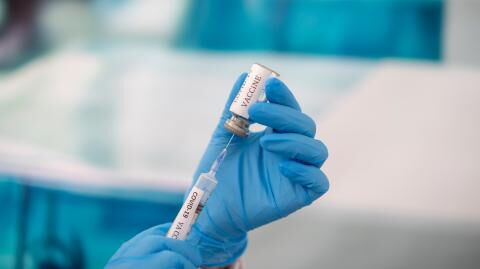The first instance of green fungus or Aspergillosis in a coronavirus patient in India was reported last week. Researchers have since warned it could triple the risk of death and that many more cases could have been missed.
Discover our latest podcast
Researchers at the Woon Chog of Albany Medical Center (WCAMC) in New York State have found that cases of Aspergillosis occur in as many as 13.5% of those hospitalised with a severe coronavirus infection.
Scientists analysed 19 separate studies from across the globe and discovered that 1,421 hospitalised COVID patients experienced COVID-19 associated pulmonary aspergillosis (CAPA).
What is CAPA?
CAPA is a type of fungal lung infection that is almost always fatal if left undetected, but it can also be challenging to treat.
Researchers revealed that almost every patient hospitalised with severe COVID and tested positive for CAPA needed to be put on ventilation. However, 12.5% of these patients also had underlying health conditions such as leukaemia, indicating that they could have been more vulnerable to developing the fungus.
Experts at the Institute of Medical Education and Research, Chandigarh, India, also found that the risk of dying with a CAPA infection was 2.8 times higher than those who were seriously ill from coronavirus alone.
The WCAMC study concluded: ‘Patients with CAPA have a high probability of mortality and early diagnosis with prompt therapy must be ensured to optimally manage these patients.’
Many more cases of CAPA could have gone undetected
None of the CAPA cases observed by the WCAMC were detected in India. Still, researchers believe that the fungal infection may be much more widespread and could easily have gone undetected.
CAPA was identified in India for the first time last week with a 34-year-old who was recovering from COVID. The man started experiencing nosebleeds and a fever; subsequently, he had to be airlifted to hospital, where he was diagnosed with the fungus.
Professor David Denning, Chief Executive of the Global Action Fund for Fungal Infections and an expert on aspergillosis at the University of Manchester, revealed to The Sun:
Awareness of CAPA was highlighted in 2020 by many experts, but this did not appear to translate to diagnostic preparedness for severe COVID in India. The explosion in cases of mucormycosis (so called Black Fungus) was unexpected but CAPA was expected, yet seemingly is still missed.
When discussing how many cases of CAPA could have contributed to India’s 390,000 COVID death count, Prof Denning hypothesised: ’Given the widespread use of corticosteroids, and ubiquitous nature of the 'green fungus' Aspergillus, probably tens of thousands.’
Untreated aspergillosis is almost always fatal.















